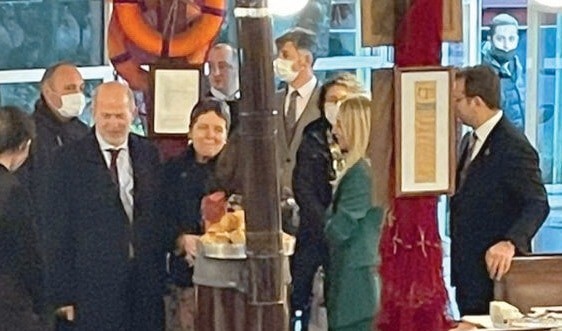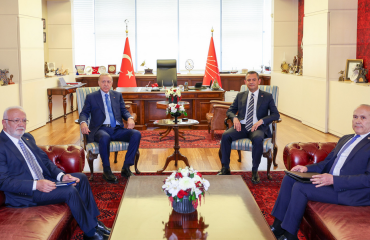

Yesterday, on February 1, Turkey’s social media users, especially Whatsapp users, were busy sharing a text and circulating it around. I must have received that text at least from fifty different sources. At first sight, there were many signs that it could be fake, but it seemed that its target audience was the opposition, and apparently, many people wanted to believe it. A few of my acquaintances who sent it to me was asking, “is it true?” However, most of them were in resentment, saying, “Look at the situation they (the ruling party) put us in”.
The fake news that convinces those who want to believe
The text which was circulated from account to account without a signature alleged that London reacted harshly to the leakage of the CCTV footage of Ekrem İmamoğlu, the Mayor of Istanbul, meeting with the British Ambassador to Ankara Dominick Chilcott in a fish restaurant while there was a snow struggle in the city. Allegedly, Turkey’s Ambassador to London, Ümit Yalçın, was summoned to the British Ministry of Foreign Affairs and received a protest note. In addition, British Foreign Minister Lizz Truss allegedly called Foreign Minister Mevlüt Çavuşoğlu and warned that the images “which should be confidential” would endanger the security of the ambassador and “undermine the relations between the two countries”. Thereupon, President Tayyip Erdoğan had to take a step back in the smear campaign about İmamoğlu.
Verifying the message was easy for those who practise journalism correctly. There were two sides to the allegations: the Turkish Foreign Affairs and the British Foreign Affairs, and neither side confirmed the allegations. So the issue should have been closed. But the text was still being sent from account to account.
“Have a smart enemy instead of a stupid friend”
It can be said that this text is a troll work. Those who wrote the text and started disseminating it could be pro-government trolls, psychological propagandists, or anti-government trolls. I’m not kidding; there may even be those who want to scratch this issue from the outside.
If the producers of this fake news are pro-government trolls, they may be trying to prove that the opposition is acting on false information; I can bet they had a lot of fun yesterday.
Those who wrote the fake text may also be trolls from the opposition. On the one hand, their aim may be to prove, from the example of Imamoglu, that the ruling AKP embarrasses Turkey and that the main opposition CHP is in a state of incapacity to resist it. If so, this brings to mind a good proverb: “Instead of a stupid friend, have a smart enemy.”
There is also the story of the “liar shepherd,” in which the shepherd boy was left with no one to believe his call for help when the wolf actually invaded the flock.
If this fake text is of foreign origin, which is possible in the virtual age, it can be considered part of an anti-Turkey public diplomacy operation.
In any case, yesterday confused a particular segment of society.
Fake news, post-truth
Fake news is a global reality as the first quarter of the 21st-century almost ends. This concept has become widespread in the USA with the administration of Donald Trump and used together with the term “post-truth”
The phenomenon was considered a threat to peace and security at the Munich Security Conference in 2017, because it could affect any area, from election manipulation to conflict. The NATO Military Committee Chairman gave an example at the time. He told us that a few days after NATO decided to make military reinforcements to the Baltic states, “news” originated from Russian social media but spread rapidly in the western press. It alleged that German soldiers had raped a 15-year-old Lithuanian girl, and German Chancellor Angela Merkel was to call Russian President Vladimir Putin to explain. Later, it became clear that the news was fake from a to z, and it was “fabricated.”
As for Imamoglu
Again, at that conference, it was stated that 80 percent of the news spread on social media were fake or suspicious and that 60 percent of them probably originated from neighbouring countries; that is, they could be of foreign origin.
The fake news alleges the UK protested Turkey because of Imamoglu’s leaked restaurant images is similar to this example. Whether internal, that is from the hands of pro-government or opposition trolls, or external, it seems to have been produced to incite confusion and demoralisation.
If Imamoglu had been able to postpone that dinner with the British Ambassador and his wife on the day of the snow struggle, which gave the impression of a social meeting rather than an official one, neither it would have occupied the public discussion to that extent and stir unnecessary discussions, nor you would have to read this fake news article today.
In the world of fake news, you have to approach the information that comes your way carefully.


